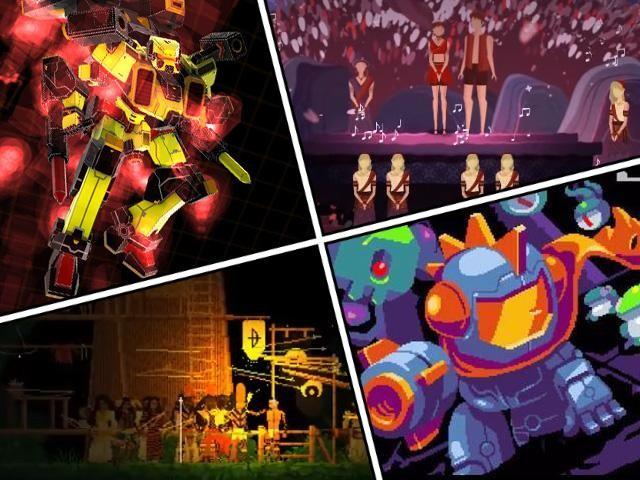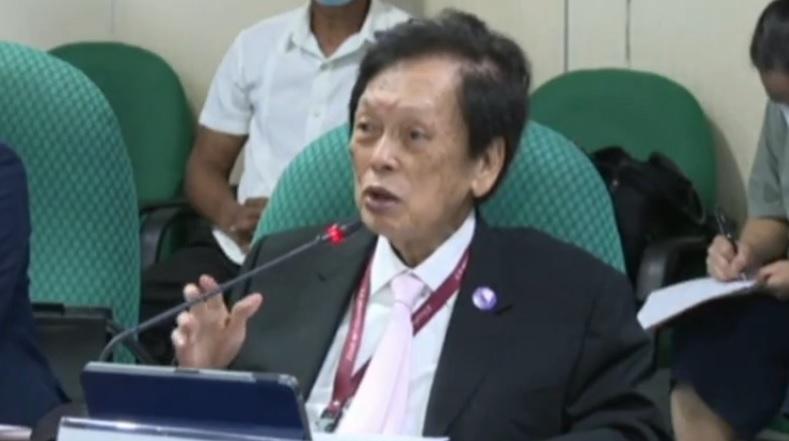7 tips on developing your own game, from Pinoy game industry veterans
[Welcome to summer! Let's try to kill boredom with cool activities at home, awesome travel itineraries, and TV and movies!]
The Philippines is on the path to becoming a major game development hub in Southeast Asia, there's no doubt about that. Our hard work, creativity, and passion ensured all this.
If you caught the game development bug and think you hold a great idea, allow us to prod you on.
Creating your own game is no cakewalk and every developer needs all the help they can get and so we asked some of the country’s most accomplished game developers for some pieces of advice on building your own game from the ground up.

1. Review the goal of the game and establish your audience
“The first thing you should always do is review what your goal is,” advised Tag Sessions game designer Tobie Abad. “What is the game meant to do?”
Is the game suppose to thrill players with over-the-top action? Boggle minds with sadistic puzzles? Touch hearts with an emotionally resonant tale? Or is the aim to showcase specific mechanics, visuals, and other such features?
In addition, you’ll need to know for whom the game is. A game that appeals to the widest audience possible should feature familiar and accessible mechanics. The more complicated the game, the smaller its niche of core gamers.
2. Research!
With countless games being developed worldwide, yours will have to stand out. So do your research: What types of games have already been done? How well have other developers transformed their ideas into playable experiences?
“For example, the client might want a match-3 game since they’re quite popular,” said Abad. “Do you give (your game) a different spin by adding role-playing game elements to it? Finding a way to give it a nice, unique twist can give your game a chance to stand out from the rest.”
Besides, research will help develop your game components, like character, story, game mechanics, and more.
Market research is important too. You want your game to make a profit, right?
“Is your market large enough?” asked Anino Games founder Niel Dagondon. “Is the genre profitable enough? What countries do well for those games? What are the top games in that genre and how much revenue did they earn?”
You can find answers to such questions online, either for free or for a fee. You can gather market data and insights through the company App Annie, for instance.
3. Turn the idea tangible
Is your concept something you can develop into a working game?

Need a wellness break? Sign up for The Boost!
Stay up-to-date with the latest health and wellness reads.
Please enter a valid email address
Your email is safe with us
“You should at least meet the minimum quality level in all aspects of a particular type of game,” stressed Dagondon. “If, for example, the type of game you want to do is an AAA PlayStation 4 game, you better assess if your team can actually do that and if you have enough experience in-house. If you can’t, why not aim for a genre that has simpler graphics?”
You’ll also have to determine the quality of the game’s elements, such as its gameplay and controls. This is where prototyping comes in.
“Run the concept as a board game or pen and paper game, with a set of rules,” recommended Mindcake Games CEO and co-founder Clifford Lim. “It depends on the type of game, of course – this may work for turn-based games, strategies, and RPGs… get something tangible, prototype it early.”
You can even program a simple version of the game – for example, one featuring the key mechanics and controls but simpler graphics and levels.
Prototypes are integral to the development process because they permit you to evaluate the game’s fundamentals. Is the gameplay fun? Are the controls intuitive? Are the characters appealing? What other areas need improvement? Only once you’re confident in your prototype should you advance to the next phase.
4. Build your team
Before building the actual game, build your team first. Choose the right people to work with. Teammates who lack the motivation to see game development to completion can have disastrous effects on the entire process.
“As important, if not more, as a solid portfolio is that certain blaze in the eyes, that hunger to make things happen,” said Moocho Brain Interactive co-founded and lead developer, Khail Santia.
“After establishing a candidate’s skill and drive, the last crucial consideration is the ability to work well with the other members of the team… You want team members… who have the grit not to turn tail at the first signs of hardship.”
The team must communicate well, and establish clear goals that can be achieved within a realistic timeframe. Additionally, each developer must know exactly what their role is.
“A member with a good understanding of what he brings to the team and why he is needed has a better chance of being an effective teammate,” explained Paolo Cabe, a programmer at Indigo Entertainment. “Since they know their roles in relation to the goal, they are better able to address issues or bring them up with the team if it is out of their scope or capacity.”
Lastly, teams must possess the flexibility to readjust to necessary changes if any insurmountable problems crop up.
5. Playtest: find the "superfans"
It’s vital to have people playtest what you’ve built; they’ll help you discover bugs and other problems in your game. But you must also pick the appropriate people for this task.
“The risks and the hard work ahead are just too great that the last thing you need is someone offering unbridled negativity,” stated Santia.
“Not that you go full steam with the first game idea that comes to mind,” he clarified, “but that you to go to a trusted person who can objectively assess your ideas and help shape them if necessary without crippling you with doubts.”
He believes it’s crucial to find “superfans” – or people who strongly believe in what you’re doing.
“Not only will their enthusiasm feed your motivation, they are often very aware of what they want and what works,” he explained. “If you can make that one superfan happy, more than likely, you will also do the same to others like him or her. Of course, for this to make business sense, you must cross-check how your game is shaping up with the prevailing genres and try to make an intelligent guess as to whether the superfan does represent a sizable audience.”
6.Listen to your players
Once the testing phase is over and you’re happy with all the modifications you’ve made to your game, it’s finally ready for public release.
Of course, now that thousands are playing your game, it’s extremely likely you’ll receive a deluge of input regarding how it can be further enhanced through future patches.
“Listen to your players,” urged Cabe. “If they have any issues or bug reports, treat those very seriously. Always be thankful that people care enough about your game to give feedback. If you want the game to grow and be remembered fondly by your players, it has to be continually polished until the experience is perfect.”
7. Post-script: the importance of design, the ability to listen, and learning how to apply the lessons learned.
It’s paramount for aspiring game developers to cultivate certain skills.
“Aspiring game developers should have an eye for great design,” offered game developer and Keybol Games founder Bari Silvestre. “They (must) know what’s pleasing to the eye and will attract attention. Gameplay-wise, they need to have a better understanding if a game will be fun or if it’ll be a chore to play.”
Silvestre also emphasizes the importance of listening to criticism, and applying lessons learned to your work.
Of course, it helps to be proficient in game development software. While formal education is always a great idea, you can now master game engines through self-study thanks to the surplus of information available on the internet. Whichever route you take, it’s essential you ask for help from experts, so don’t shy away from teachers, friends, forums, and Facebook groups.
Lastly, it’s beneficial to create a document detailing your game’s various aspects, such as its mechanics, story, enemy types, power-ups, modes, etc. This will give you a point or reference and help you keep track of your progress. This document will likely evolve over time as you discover new ways to improve your game. — LA, GMA News

Need a wellness break? Sign up for The Boost!
Stay up-to-date with the latest health and wellness reads.
Please enter a valid email address
Your email is safe with us









